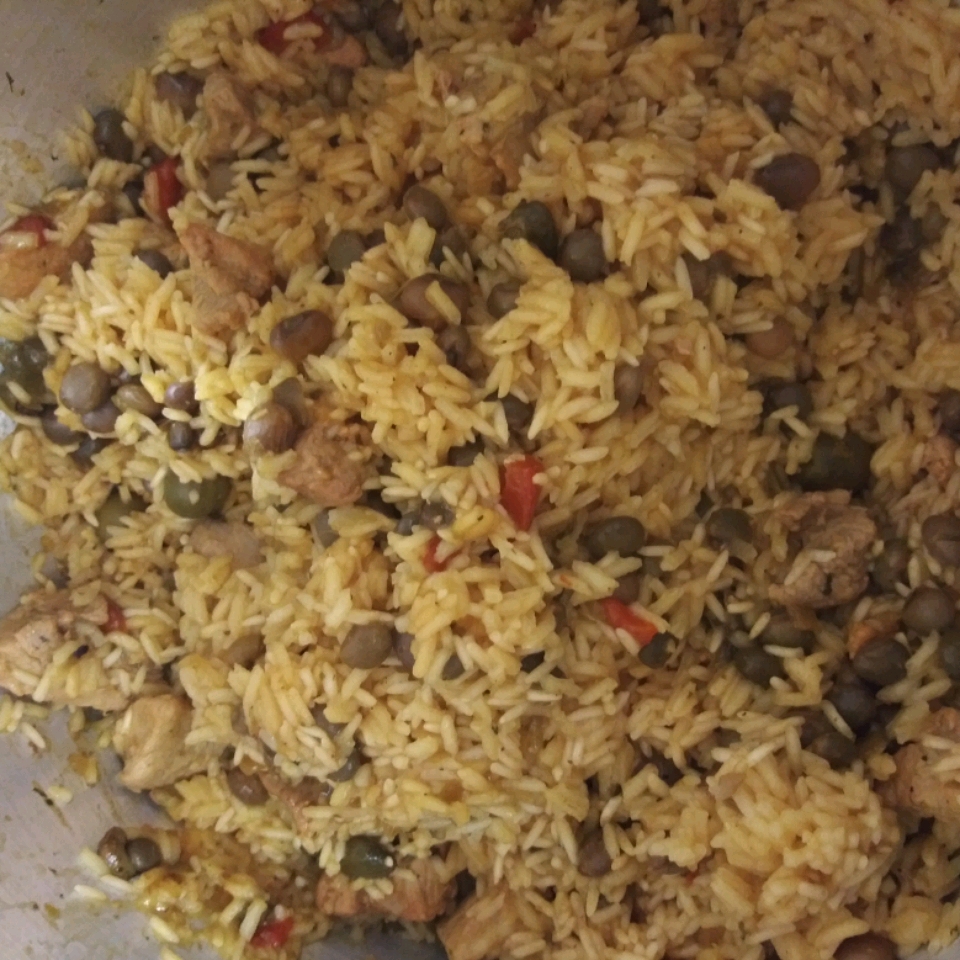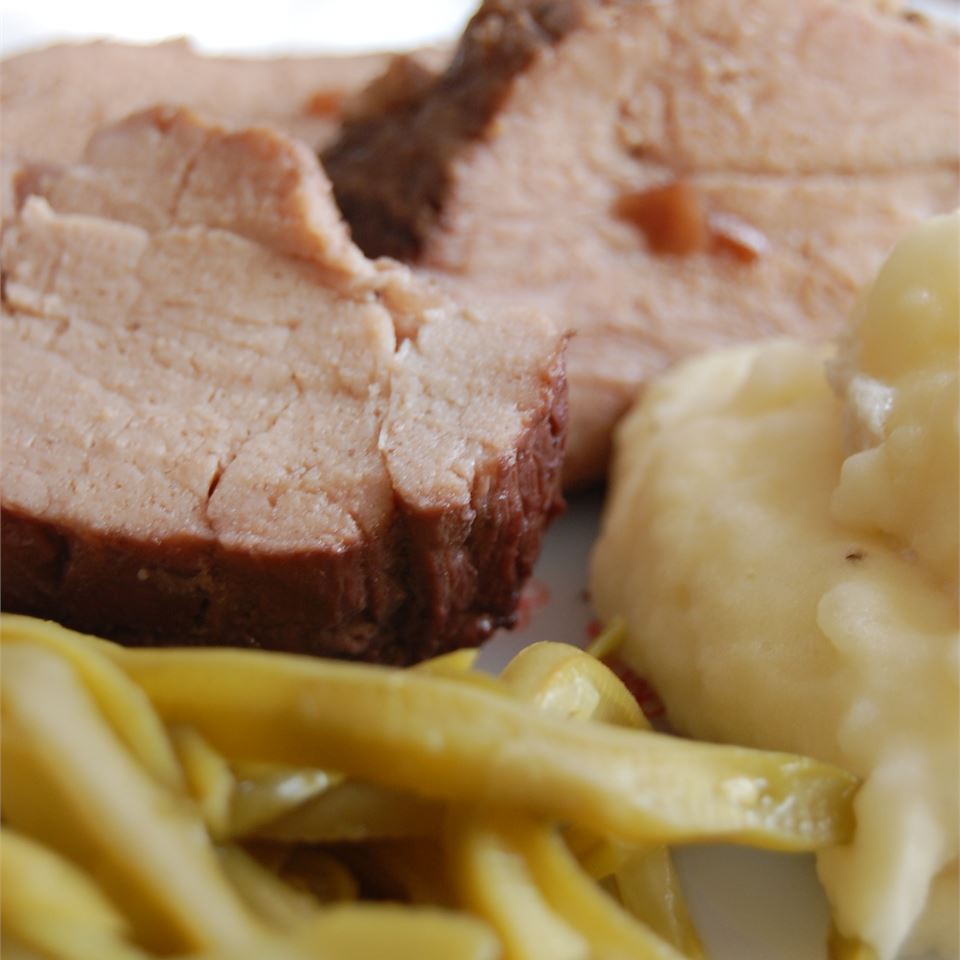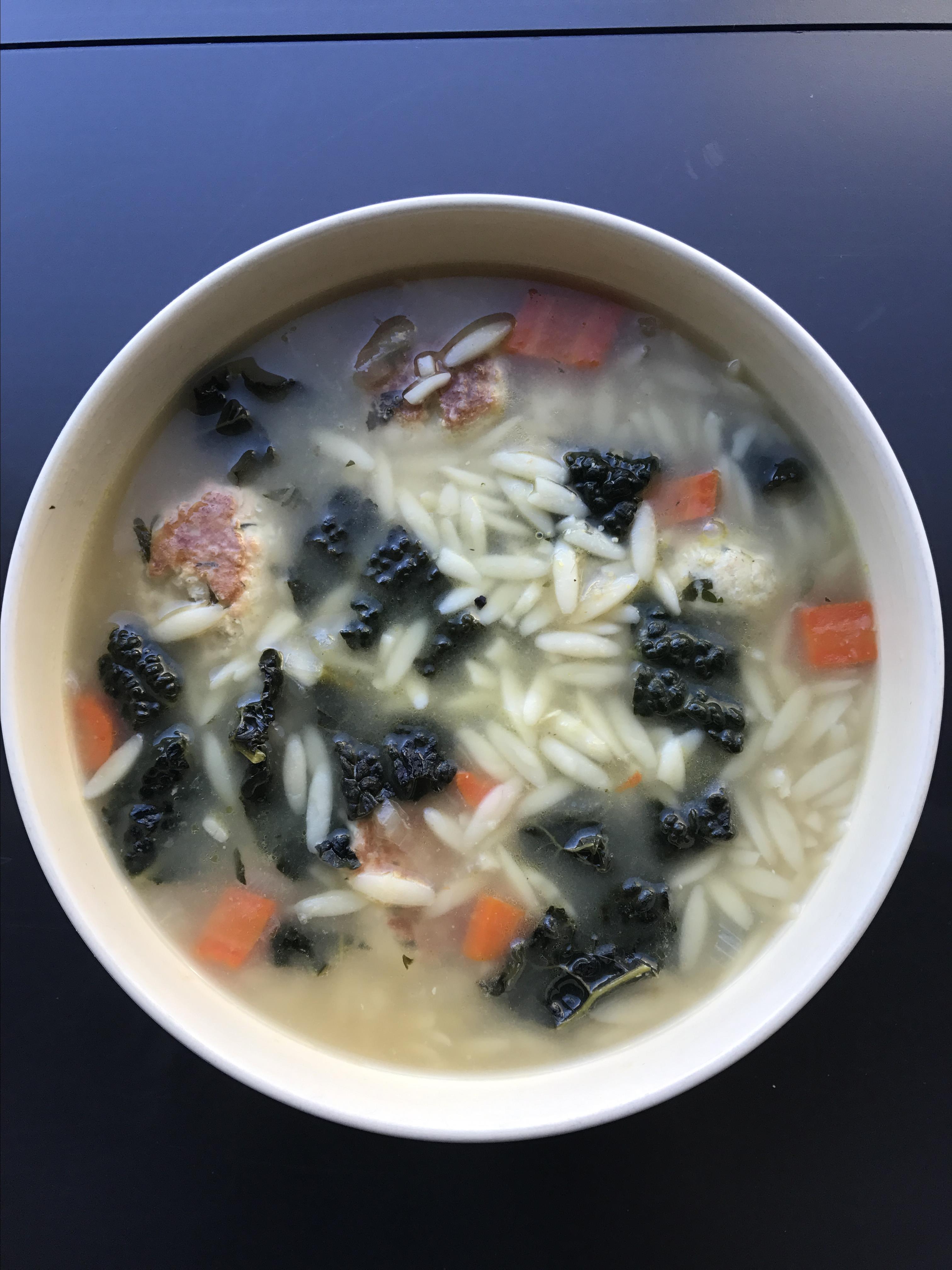**Discover the Enticing World of Chili: A Culinary Journey Through Taste and Tradition**
Embark on a delightful culinary adventure as we explore the captivating world of chili, a dish that tantalizes taste buds and warms hearts. Originating from the vibrant streets of Texas, chili has evolved into a diverse and beloved dish with countless variations, each boasting its own unique blend of flavors and textures. From the classic Texas chili, brimming with beef, tomatoes, and a symphony of spices, to the intriguing white chili, featuring tender chicken or turkey in a creamy broth, chili offers a culinary canvas that invites experimentation and creativity. Vegetarian chili, bursting with hearty beans, crisp vegetables, and a rich tomato base, caters to those seeking a meatless delight. And for those who crave a taste of the sea, seafood chili, featuring succulent shrimp, tender fish, and a medley of aromatic spices, promises an unforgettable culinary experience. No matter your preference, chili offers a comforting embrace, perfect for gatherings with loved ones or simply savoring the warmth on a chilly evening.
AYERS CHILI
During my 25 years of marriage, I have made more pots of chili than I can count. I would never seem to make chili the same way twice. That was until I made it this way. After I served this to my husband, he said this is the one he wanted to eat again. I wrote down the recipe and now this is the only way we have it in our house....
Provided by Jody Ayers
Categories Chili
Time 55m
Number Of Ingredients 14
Steps:
- 1. Heat Olive Oil in a large soup pot. Once heated, add chopped onion and bell pepper and saute until tender.
- 2. Add ground beef and cook until brown. Add Black pepper and seasoned salt at this time.
- 3. Drain any oil if there is any.
- 4. Add Chili seasoning and tomato juice and allow to simmer for 5 minutes.
- 5. After the 5 minutes, add the tomatoes, tomato sauce and water. Simmer for an additional 5 minutes.
- 6. Add the beans of your choice and salt to taste. Allow chili to simmer for an additional 20-30 minutes.
- 7. Add brown sugar during the last few minutes of cooking. Serve with crackers and carrots or whatever you desire.
THE BEST CHILI
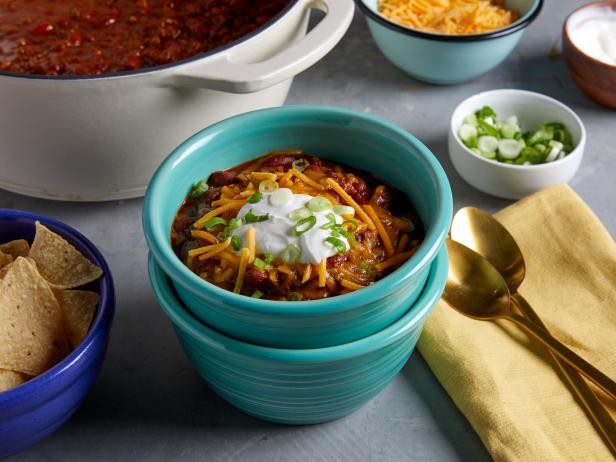
There are a thousand ways to make chili, but this is the quintessential, totally classic version. We used ground beef, kidney beans and the perfect blend of spices. You can slather it on hot dogs and burgers or serve it as a dip, but it can surely stand on its own. Chances are, you have everything you need right in your pantry. Top it with your favorite garnishes and serve with plenty of tortilla chips.
Provided by Food Network Kitchen
Categories main-dish
Time 1h30m
Yield 4 to 6 servings
Number Of Ingredients 16
Steps:
- Heat 2 tablespoons of the oil in a Dutch oven or large pot over medium-high heat. Add the beef and cook, breaking up the meat with a wooden spoon, until just browned, about 4 minutes. Transfer to a plate with a slotted spoon.
- Reduce the heat to medium and add the remaining 2 tablespoons oil. Add the onions and cook, stirring occasionally, until softened and lightly golden, about 10 minutes.
- Add the jalapeno and cook, stirring occasionally, until softened, about 5 minutes. Add the garlic and cook, stirring frequently, until fragrant, about 30 seconds.
- Add the chili powder, cumin, paprika, cayenne, 1/2 teaspoon salt and the tomato paste. Cook, stirring frequently, until coated and fragrant, about 1 minute.
- Stir in the beef broth and crushed tomatoes and bring to a boil over high heat. Stir in the cooked ground beef and any accumulated liquid, then reduce the heat to medium-low. Simmer the chili, partially covered, until the beef is tender and the sauce is slightly thickened, about 30 minutes.
- Stir in the beans and their liquid and simmer uncovered until the beans are softened and the chili is thickened, about 30 minutes more. Season with salt and pepper.
- Top with sour cream, Cheddar and scallions. Serve with tortilla chips.
HOW TO MAKE CHILI
Protein, heat, liquid: It doesn't take much to make a good chili, but quality is key. Let Sam Sifton walk you through.
Provided by Sam Sifton
Number Of Ingredients 0
Steps:
- A great chili rests on two foundations: its protein, and the peppers that flavor it. It is, essentially, a stew. We'll get to the chiles, but we'll begin with the protein. If you're cooking with meat, look for a cut high in fat and flavor. If you're cooking with beans, find a sturdy variety: A pinto or navy bean is an excellent chili bean.Chuck beef, from the steer's shoulder, is excellent for chili. But you can also do very well with brisket and short ribs, and there are fantastic chilis made of lamb and pork shoulder. Whatever protein you use, cut the meat into 2-inch cubes, or, if you'd like to work faster or simply prefer the texture, use ground meat. In much of Texas and at the butcher shop anywhere, you can get your meat coarsely ground, which just about splits the difference between cubes and ground. But you can also use a combination: Some cooks even like to use a number of different cuts, combining stew meat with ground. Consider between ¼ and a ⅓ of a pound per person. It should yield enough fat to flavor your chili well. Whatever you choose, be sure to fry some bacon in the pot before you get started, and then set it aside to crumble into the chili later in the process. There are those who swear by ground turkey chilis or who make the dish with chicken. Be careful when doing so, however, so that the meat does not dry out. Consider between ¼ and a ⅓ of a pound per person, supplemented perhaps with a few strips of bacon to help keep everything juicy. Or use chunks of dark meat from the richer, fattier thighs, or even duck.Farm-raised or wild-shot game - venison, buffalo, moose, marsh duck, goose - often bridges the distance between red meat and poultry: It delivers powerful flavor whether it comes from the field or the sky. Cook between ¼ and ⅓ pound per person, substituting some ground beef or lamb if the game is very lean. As with turkey and other lean cuts, you'll want to add some fat to the proceedings, for flavor and lusciousness. There are those who consider beans in chili to be an apostasy. But beans in chili can be delicious and, indeed, are an easy way to "stretch" a chili from a dish that serves 6 to a dish that serves 10 or even 12. (Figure something in the neighborhood of a cup of cooked beans per person.) Pinto beans make a wonderful addition to a beef chili, and white ones are beautiful with poultry and lamb. Some may cook only with beans, using chiles and spices to deliver big flavor into each legume. It is a good idea, in this case, to think about increasing the variety of chiles used, and to consider increasing the level of spice as well. A base of sautéed onions and garlic, heated through with oregano before adding chiles and beans, is a fine way to launch a vegetarian chili. (Take a look at Melissa Clark's recipe for a vegetarian skillet chili, if you want a starting point - or a finishing one.) All will defend their decisions as the only permissible ones. And do you need to cook the beans from scratch? You do not, unless you want to. Chili should never be a project.
- Traditional Texas chili is made with meat, chiles and little else. What kind of chiles and what form they take is a matter of some debate. Best in our view is a mixture: fresh jalapeños, dried anchos and pasilla powder. Top row, from left: Dried ancho chiles, dried New Mexico chiles and fresh jalapeño peppers. Bottom row, from left: Dried chipotle peppers, dried pasilla peppers and fresh poblanos. Some varieties of chiles are hot, some sweet and some smoky. Some are dried and toasted and ground together; others are toasted and then simmered in water or stock before being blitzed in a blender or food processor or fished from the pot and discarded; still others are used fresh. As a general rule, you'll want to add any chili powder early in the process, preferably after you've seared the meat and as you're cooking down any aromatics. But whole chiles can be added along with the cooking juices, and pulled out before serving. The world of chiles is broad, but here are a few varieties that work especially well in chili. There was a time when some of them were hard to find, even in large urban supermarkets. That is no longer true, save perhaps in the case of the delicious Chimayo. In which case, as ever, the internet can provide. Poblano: A big green pepper that is not too punchy in its heat. As poblanos ripen, the fruit reddens. Ancho: A dried, ripe poblano pepper becomes an ancho chile, sweet and smoky, mild to medium hot. Pasilla: This is a dark chocolate-brown dried pepper of moderate pungency, and brings great deepness of flavor to a chili. Jalapeño: Arguably America's pepper, this fiery little fruit can provide real zip and freshness when added to chili. When it has been smoked and dried, a jalapeño is called a chipotle. Chimayo: A New Mexican pepper of extraordinary richness, which when dried and ground brings a deep redness to all that it touches. If you can't find any Chimayos, note that any pepper from the state of New Mexico, usually labeled a "New Mexican" chile, is a worthy substitute, fresh or dried.Confusingly, chile powder and chili powder are two different things. (More confusingly, The Times has conflated them for years.) Chile powder is just dried, pulverized chiles. Chili powder, on the other hand, is a mixture of dried, ground chiles with other spices, and it helps bring a distinctive flavor to the dish that bears its name. HOMEMADE CHILI POWDER: Come up with a good recipe for chili powder, and it will give you some of the confidence to call your chili the best you've ever made. To follow the Texas restaurateur Robb Walsh's recipe, toast three medium-sized ancho chiles in a pan, then remove them and allow to cool. Do the same with a ½ teaspoon of cumin seeds. Seed the anchos and cut them into strips and then process them in a spice grinder with the cumin seeds, a big pinch of Mexican oregano and, if you like, a shake of garlic powder. Use that in your chili, and then store what's left over in a sealed jar. Use it quickly, though. It grows stale fast. STORE-BOUGHT CHILI POWDER: Chili powder is, like the dish it serves, a Texas tradition, most likely dating to the arrival in the state of German immigrants who thought to treat the local chiles as their forebears did the hot peppers in Europe, drying and grinding them into a kind of New World paprika. Eventually other spices were added - cumin and oregano and garlic powder, for instance - and now each chili powder you see in a store is slightly different from the last. For some, using chili powder in chili is anathema. They don't like the uncertainty of knowing what the mixture is going to taste like in their stew. They don't trust that the powder is fresh. They believe the resulting chili won't have layers of flavors. For many others, though, chili powder is a delicious timesaver, particularly if they've found a chili powder they like. If you do find one, use it a lot. The critics aren't wrong about the freshness.
- You've gathered your protein, and made executive decisions about your spices. It's time to make the chili. Making one calls for layering flavors into the stew, deepening each as you cook. Start by browning the meat in batches, then removing it to rest while you sweat onions, garlic and peppers, in whatever form you're using them, in the remaining fat. If you're making a vegetarian chili, start with the sweat! Then comes liquid, which will deglaze the pot and add flavor, while also providing a flavorful medium in which to simmer your meats or beans. In her Texas-style chili (below), Julia Moskin here at The Times taught us to use dark beer along with water and some canned tomatoes, but you can use plain stock instead, or a lighter beer, or more tomatoes in their juices, or a combination, according to your taste. Some like to add body to their chili by adding masa harina to the stewing liquid, or a sliced-up fresh corn tortilla that will dissolve in the heat. Julia allows for both in her recipe, which we've taken as our standard, but we encourage you to use the information you've gleaned here to make chili your own. The dish is very simple: browned meat and chiles, or chili powder, or both, simmered until tender. Everything else is up to you. Add a few dried peppers to simmer alongside the protein, and if you're cooking beef or game, consider adding a tab of dark chocolate to help deepen the flavor of the sauce. Then bring the heat to the lowest possible temperature until the protein is, as the saying goes, fork-tender. That could take 30 minutes if you're working off coarsely ground beef. It could take four hours if you're working with venison or a big clod of beef. If your stovetop can't go lower than a fast simmer, cook the chili in the oven instead, partly covered, at 325 degrees. Or use a slow cooker set to low, and keep a good eye on it after four hours or so. Fish out the dried peppers, and you're ready to eat. Once you've aced Julia's master recipe for Texas-style chili, you can explore other chili styles, whether it's a vegetarian chili with winter vegetables, Cincinnati-style chili, chili-gumbo of south Louisiana, Pierre Franey's lamb chili with lentils or his turkey chili. All reflect and celebrate America's ever-changing relationship with the dish.
- The chili's done, but don't eat it yet. As with gumbo and beef stew, chili is a dish that benefits mightily from an overnight "cure" in the refrigerator. Reheat gently on the stovetop or in a low oven when you're ready to eat, and top it with any or all of these fixings. • Chili gains a lot from the bright punch of alliums: Chopped onion and scallions are a great bet. As are avocado slices, or, one better, homemade guacamole. • Cut through the dish's richness with the clean flavors of fresh chopped tomatoes and cilantro leaves. • Or if a lightly vinegary finish is more your speed, top your chili with pickled jalapeños or red onions. • To mellow your chili's heat, pair it with a spoonful of sour cream, or some plain Greek yogurt. • Shredded Cheddar or Monterey Jack can add a mellow saltiness. • And, lastly, consider the fried egg. A worthy companion, it can even make last night's chili dinner into a hearty breakfast.• Pour the chili over rice, whether white or brown; spaghetti, as a nod to the Cincinnati style; or warm and creamy grits. • Or top it with corn or tortilla chips, crumbled Saltines, oyster crackers or Fritos. (Or, put the chili on top of those Fritos for a Frito pie.) • Serve it with warm tortillas or one of many kinds of cornbread.
CLASSIC CHILI
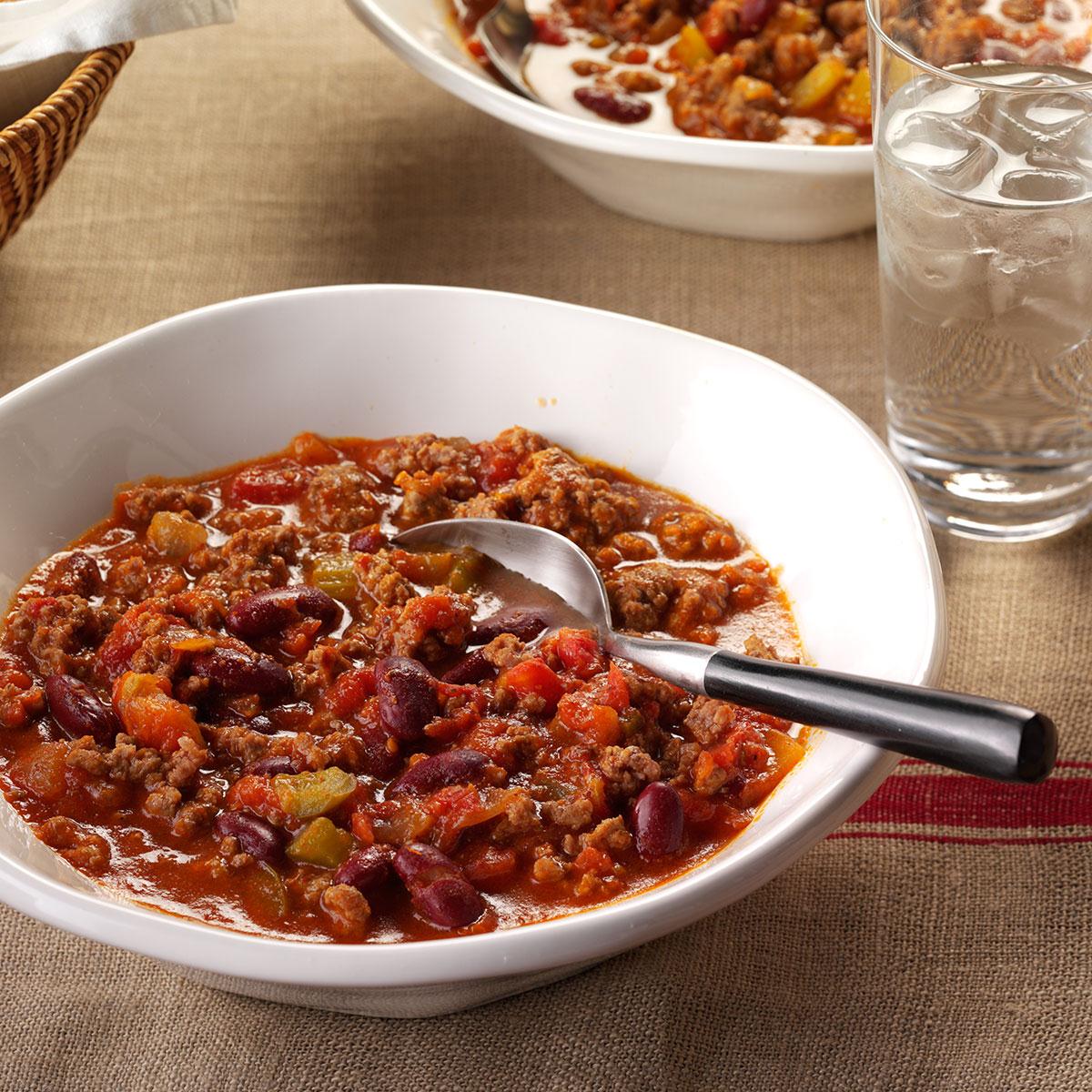
Mom's homemade chili recipe was the best! She knew just the right ingredients to put her 'stamp' on it. I could eat it with my eyes closed and know it was hers. It amazed me that she could put it together in so little time. -Marjorie Carey, Alamosa, Colorado
Provided by Taste of Home
Time 2h
Yield 12 servings (3 quarts).
Number Of Ingredients 16
Steps:
- In a Dutch oven or large soup kettle, saute green pepper, onions and celery in oil until tender, about 5 minutes. Add ground beef and cook until browned; drain. Stir in tomatoes, tomato sauce, water, Worcestershire sauce and seasonings. Bring to a boil; reduce heat. Cover and simmer for 1-1/2 hours, stirring occasionally. Add kidney beans. Simmer, uncovered, 10 minutes longer. If desired, serve with tortilla chips.
Nutrition Facts : Calories 259 calories, Fat 10g fat (4g saturated fat), Cholesterol 47mg cholesterol, Sodium 708mg sodium, Carbohydrate 23g carbohydrate (7g sugars, Fiber 7g fiber), Protein 20g protein.
EASY HOMEMADE CHILI
Easy homemade chili. Goes great with cornbread or over corn chips for a chili pie! I like to use spicy pinto beans.
Provided by Tobi Hargis
Categories Soups, Stews and Chili Recipes Chili Recipes Beef Chili Recipes
Time 30m
Yield 6
Number Of Ingredients 9
Steps:
- In a large saucepan over medium heat, combine the beef and onion and saute until meat is browned and onion is tender. Add the stewed tomatoes with juice, tomato sauce, beans and water.
- Season with the chili powder, garlic powder, salt and ground black pepper to taste. Bring to a boil, reduce heat to low, cover and let simmer for 15 minutes.
Nutrition Facts : Calories 394.2 calories, Carbohydrate 48.8 g, Cholesterol 45.9 mg, Fat 9.2 g, Fiber 17.9 g, Protein 30.6 g, SaturatedFat 3.5 g, Sodium 525.6 mg, Sugar 4.4 g
Tips:
- Use fresh, high-quality ingredients. This will make a big difference in the flavor of your chili.
- Don't be afraid to experiment. There are many different ways to make chili, so feel free to adjust the ingredients and spices to your liking.
- Cook your chili low and slow. This will allow the flavors to develop and meld together.
- Serve your chili with your favorite toppings. Some popular options include cheese, sour cream, onions, and jalapenos.
- Make a big batch of chili and freeze the leftovers. This is a great way to have a quick and easy meal on hand.
Conclusion:
Ayers Chili is a delicious and versatile dish that can be enjoyed by people of all ages. Whether you're looking for a hearty meal to warm you up on a cold day or a flavorful dish to serve at a party, Ayers Chili is sure to please. So next time you're in the mood for something delicious and easy to make, give Ayers Chili a try. You won't be disappointed!
Are you curently on diet or you just want to control your food's nutritions, ingredients? We will help you find recipes by cooking method, nutrition, ingredients...
Check it out »
You'll also love






